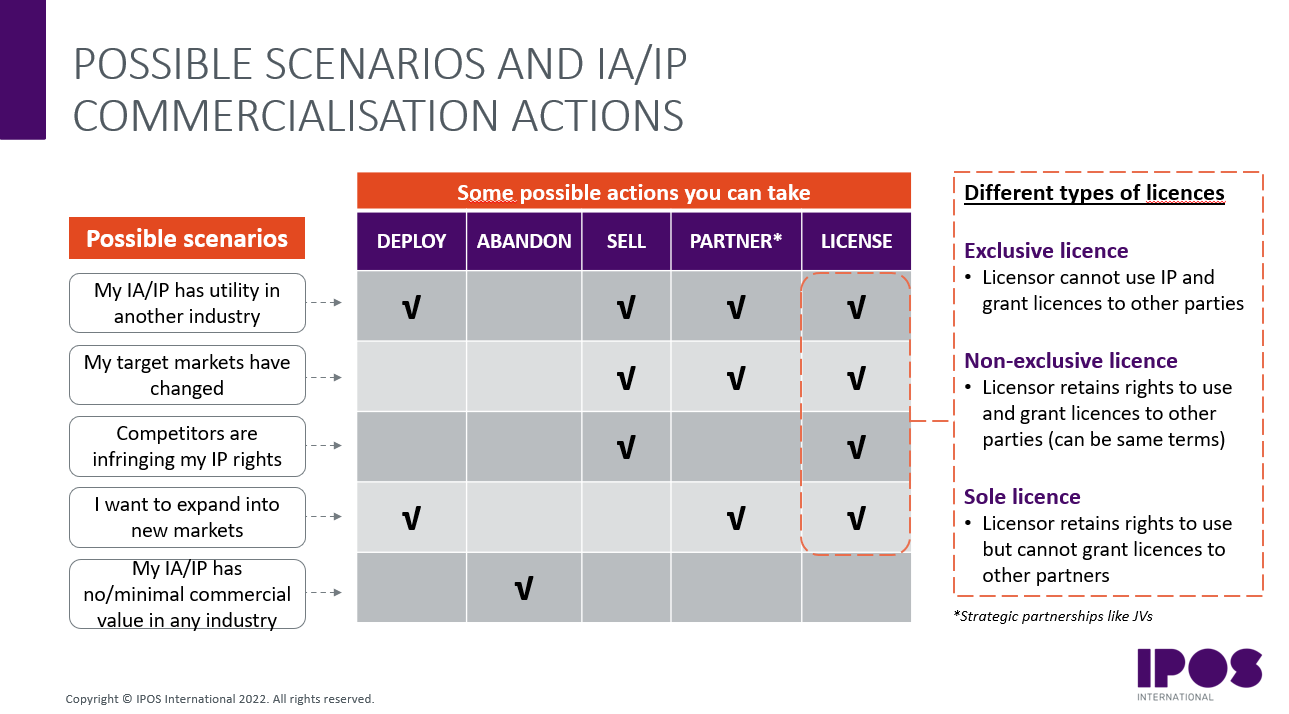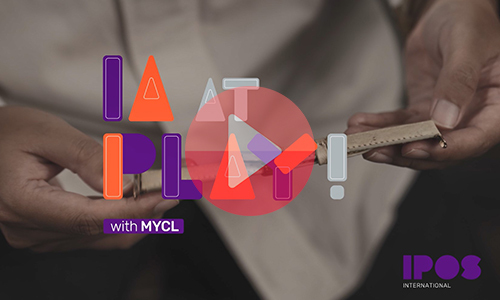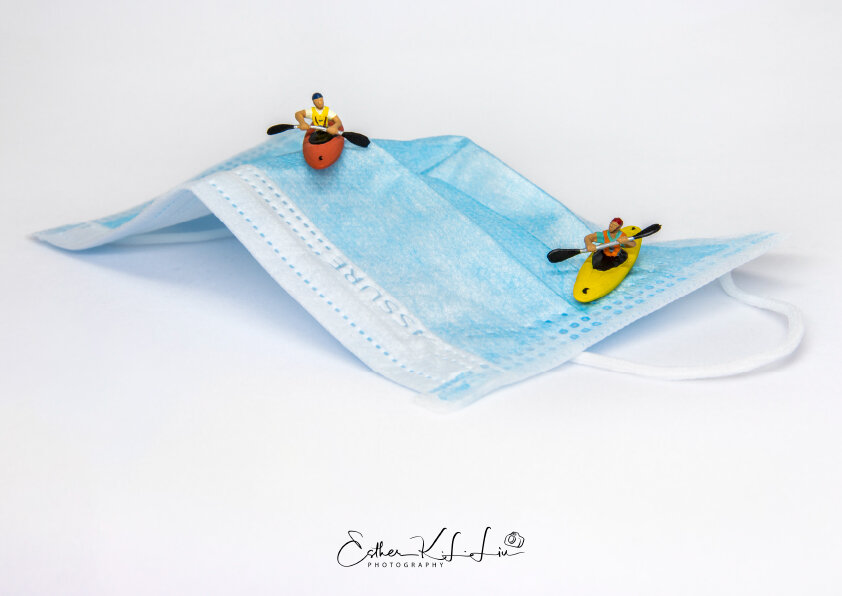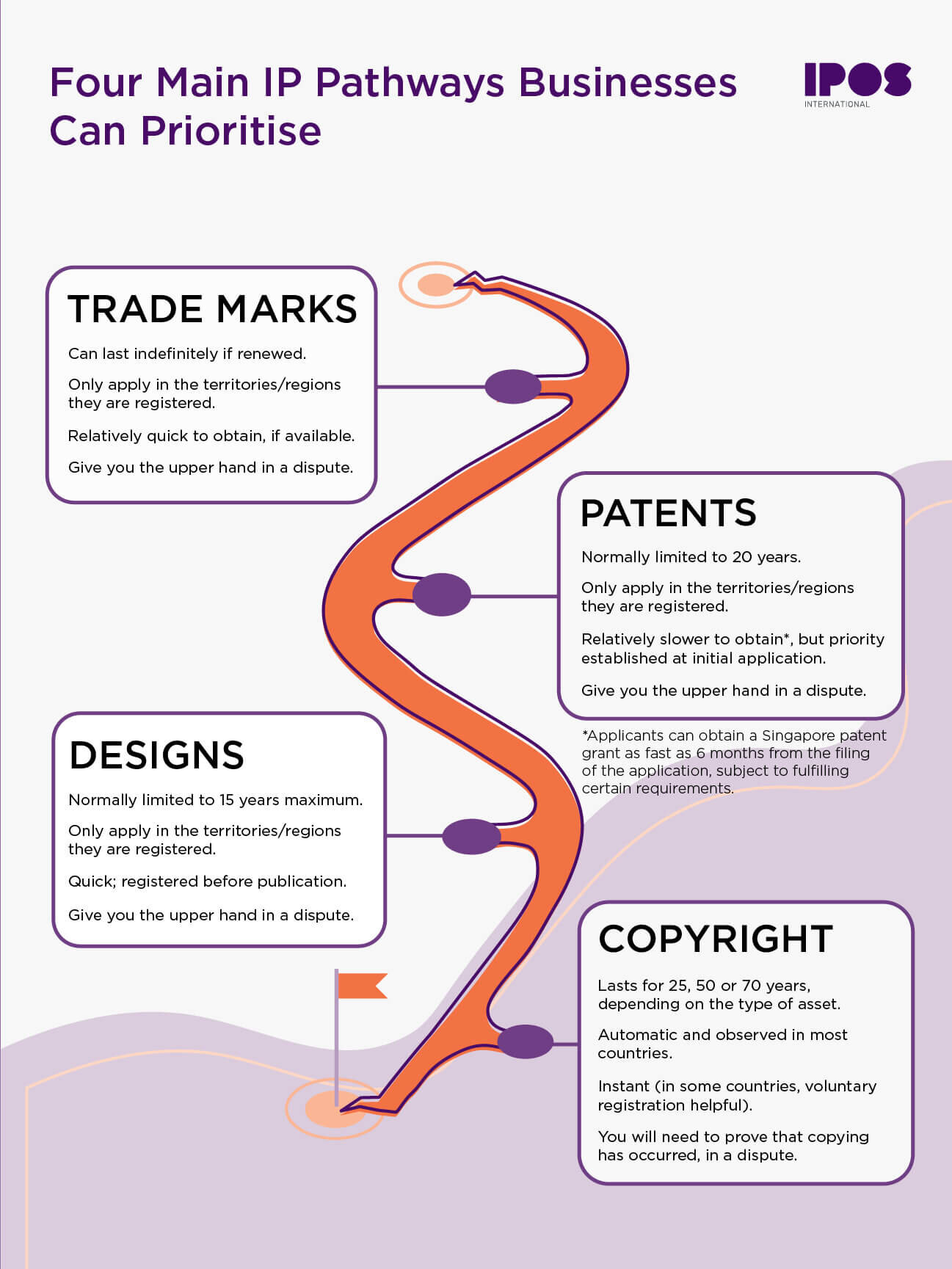
Grow With IP: In Conversation With MYCL CEO, Adi Reza Nugroho

Watch IA at Play! with MYCL - https://youtu.be/r3nrv-XP48A
Our ‘Grow With IP’ series brings you fresh, actionable insights on intangible assets (IA) and intellectual property (IP), straight from the C-suite.
Founded in 2018, MYCL is a Singapore Greentech start-up that produces eco-friendly and sustainable vegan leather for fashion and building industries using proprietary mycelium technology. Mycelium, the threadlike structures of the mushroom, is grown from agricultural waste, and can be made into clothing and accessories like jackets, watch straps, wallets and even sneakers. Its proprietary technology has the potential to reduce 68% of the global carbon footprint, 70% of water used and 90% of toxic waste from animal leather production. With such impact, MYCL has attracted tens of major global brands to collaborate in bringing their mushroom materials to market, including Japanese streetwear Doublet.
MYCL was first awarded the DBS Foundation Social Enterprise Grant in 2016 to develop a working prototype of its mycelium-based material called Mylea. In 2018, MYCL successfully clinched another grant by DBS Foundation to ramp up production and develop an intangible asset strategy with IPOS International to create a sustainable business model.
Sustainability: a deep-rooted issue in the fashion world
On how MYCL works with communities to combat environmental issues exacerbated by the fashion industry, Adi shares: “We use agriculture waste collected near our factories to act as mushroom nutrients to develop mycelium, which we harvest and treat to create materials similar to leather.
“These products are not leather, but they’re better. The reason why we have developed mushroom leather is because we see how the fashion industry has had a huge environmental impact on the world. At least 21 billion tonnes of carbon dioxide emissions have been emitted by the industry alone, and 28% of that comes from material productions, including leather manufacturing.
“Animal leather that comes from cattle farming impacts the environment. This industry is taking up our earth landmass, consuming a lot of water, and emitting high amounts of carbon dioxide.
“So, the big question in the fashion industry is, 'Can we have a low-impact leather for the future?'.
“We see consumer preferences shifting now. People these days have become more eco-conscious, and they push fashion brands to find alternative materials that are more responsible. That’s why we see a jump in demand for vegan leather – in fact, the global vegan leather market now generates 90 billion USD per year.”
We sit down with Adi to discuss how MYCL has leveraged IP to strengthen their competitive edge and grow.
Q1
Congratulations on taking MYCL to new heights with all the accolades and awards you’ve earned over the past few years. Just three years ago, MYCL started off as a social enterprise, and today you’re collaborating with big names in the industry and seeking Series A funding. Could you share how you’ve transformed your social enterprise start-up from its early days, to where you are today?
Adi: We had many iterations in our research in order to introduce products that would be accepted and welcomed by the consumer market. We started in 2012 as mushroom farmers, selling mushrooms as gourmet food and even DIY mushroom kits where people could grow mushrooms in their homes. In 2014, we saw that mushroom technology could go beyond food. With my background in architecture, we saw potential for mushrooms to be made into building materials. Our first few iterations before mushroom leather were on creating mushroom composites. As we progressed, we saw a lot of improvement in the materials we had developed. We then did a product-market fit to see which innovations could be accepted by the market, with a low barrier to entry – and that’s been our journey so far.
Q2
Seeing how the pandemic has affected many businesses, it is notable that MYCL has still secured many orders from across the world, including a pilot program with six major global brands. As CEO, how do you ensure continuous value creation and growth for MYCL?
Adi: During this pandemic, the fashion industry has indeed been hit hard, and a lot of workers in the value chain are affected. Since 2015, we’ve been empowering local communities, promoting gender equality, and partnering more than 200 farmers in our network, which we continue to do even today.
We see fashion brands doubling down in their investments on sustainability. In fact, we see COVID-19 as a watershed moment for the fashion industry to not just continue working with big brands, but adopt innovations like ours, as part of a “Build Back Better” initiative.
Two months ago was a historical moment for us because we participated at Paris Fashion Week, collaborating with Louis Vuitton (LV) and other prize-winning designers. After the runway event, LV even came back to us with more orders for next year.
We also collaborate with Fashion For Good, a sustainable fashion incubator that has strong networks with global fashion brands. They are helping us organise this consortium where we will get to prototype together with big brands. This is really important to us because we can learn and get feedback from these bigger players to improve our innovations and grow as a business.
Read also: Pivot Your Business With Intangible Assets In Challenging Times
Q3
Can you explain about how intellectual property (IP) and intangible assets (IA) are important for your business growth, including in collaborating with big brands and securing orders from all across the world? How did IP/IA give you an edge to achieve these?
Adi: IA definitely play a big role for us. For registrable assets, we have patents and trade marks, and for our non-registrable assets, we have know-how, data, our customers, and our value chain. A trade mark gives us a bigger play when we collaborate with companies. We ask brands to put our logo onto their end-products so that their customers will know about us, bringing awareness to a bigger audience on mycelium leather and our business. We are inspired by Intel, who has successfully exercised this by putting their brand on laptops and PCs using their technology. We actively try to adapt that to create more awareness about our mushroom leather among consumers and partners, which ultimately feeds back into our business.
Read also: Harnessing IP in Today's Digital Economy
Q4
How do you use IA as a tool or position your IA/IP for negotiating with potential joint-venture partners and collaborators?
Adi: We get approached by biowaste producers who want to integrate our unique technology in their production process, to better utilise their agricultural waste to create a zero-waste system. These partnerships help us secure our production means; when we tap on their agricultural waste, we can create more mycelium leather while lowering our production costs. We provide the technology while they provide financial support, so these are great win-win partnerships.
We are also very grateful that last year, we did an exercise with IPOS International on IA management. It empowered us in these negotiations by giving us a proper strategy to achieve our desired outcomes. Before that, we didn’t have any idea on how we could commercialise or even manage our IP properly.
Read also: How Effective IP Management Can Help Your SME
Q5
What are your three key IP initiatives you’ve implemented that have really benefitted your company?
Adi: The first would be how we streamlined our corporate structure and clarified IA ownerships. Consolidating all our IA under a single entity provided clarity – for example, when licensing our IP, it’s now just controlled by one party. This simplified process really helps as we explore partnerships with overseas collaborators, where agreements can get very complex.
The second is establishing branding and trade marks. This plays the biggest role as having proper registered marks guided us in how we could protect them in several key markets, under relevant classes. In our early days when we focused on the Indonesia market, we didn’t realise that the ‘Mycotech’ brand name was already registered overseas. That’s why we took a step back and rebranded to ‘MYCL’ to smoothen any potential expansion plans.
The third is having in place a technology protection strategy. In the past, we only saw the importance of having patents or registrable assets. But now, we see how trade secrets and know-how can play extremely important roles too. As such, we currently manage these non-registrable assets actively, by implementing proper documentation for know-how – we write it down, list it, and take steps to secure and protect the information internally. For start-ups like us who have limited resources, trade secrets can be a cheaper way to protect our IP where suitable – otherwise we may need to spend hundreds of thousands of dollars on unnecessary patents.
Q6
Having gone through the innovation journey from ideation, protection, and now commercialisation, what insider advice and actionable tips can you share with your fellow start-up founders?
Adi: First, create more awareness on the importance of IA among your business and team – not just the founder, but among the entire team. It’s a very good investment to have your team attend IP webinars and courses to understand the concept of IA and their useful applications. Whenever you develop new innovations, there are always new IA/IP created. Having your team share the same mind frame as you on how to manage your IP helps create a strong foundation for the filing and protection process.
Second, would be to identify what IP you actually own. What innovations or IA do you need to protect and file for? Or are trade secrets the way to go? Thinking about this early can potentially save you lots of money.
Takeaway
IPOS International IP Strategist Ye Thu Aung weighs in on MYCL’s experience:
For start-ups with limited resources, trial and error with their IA/IP strategy is simply not feasible. To select a protection strategy that is fit for purpose, companies need to have a good overview of their IA/IP portfolio. A helpful starting point would be to identify IA and IP they already know they own, including their patentable inventions, trade secrets, know-how, brands and trade marks.
Companies will then need to consider which stage of the innovation journey they are at. If in the early stages of developing a product, R&D will continue to be key. For enterprises close to commercialisation, they can consider one of the commercialisation models below (or even a mix) that best fits their business objective, mission, and vision:

IPOS International helps enterprises and industries use IP and intangible assets for business growth. To learn how you can leverage on your IP, book a complimentary chat session on your intangible assets with us today.



Book a complimentary chat with us to learn how you can leverage on your IP.
Book IA Chat Session



